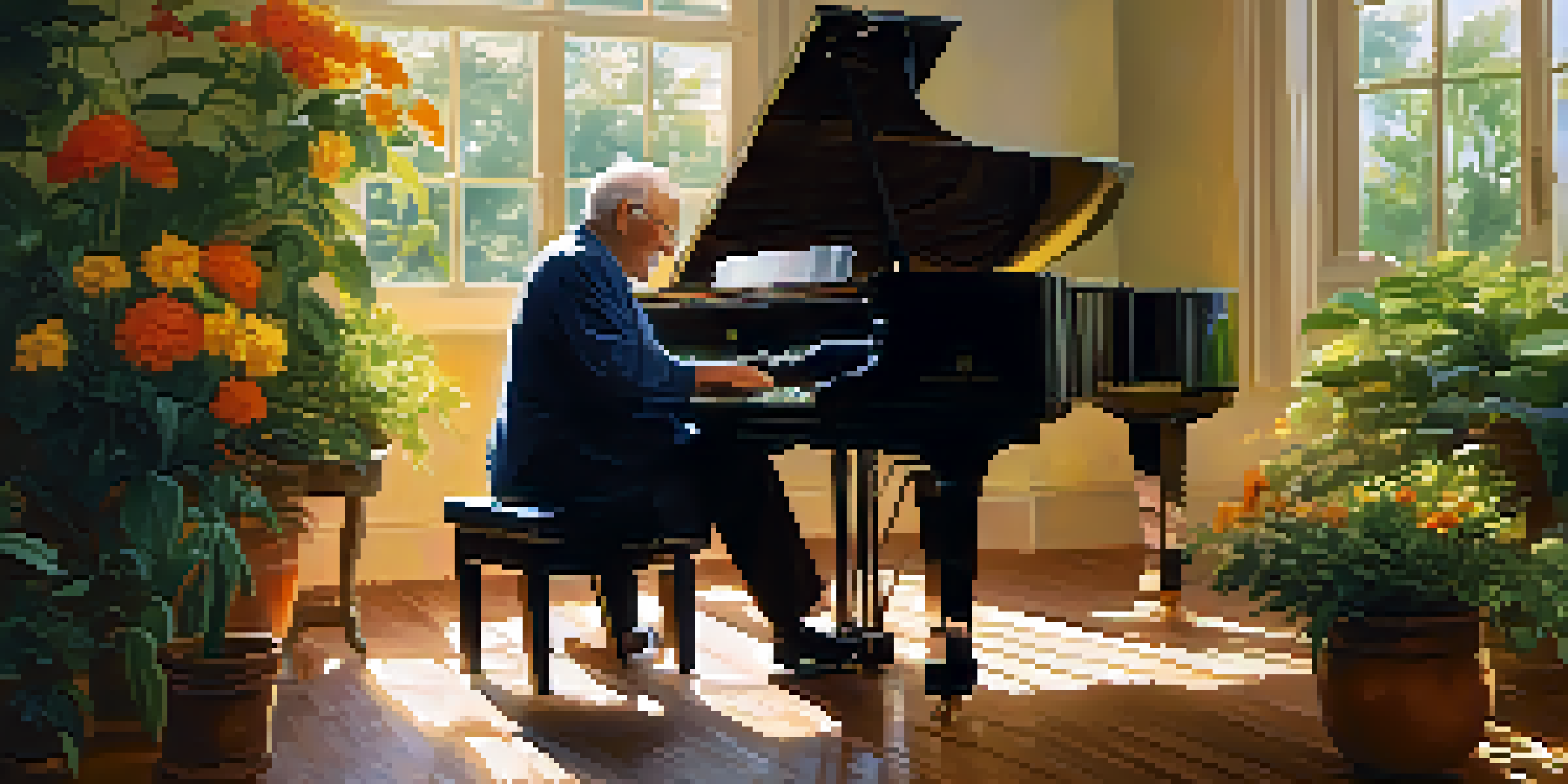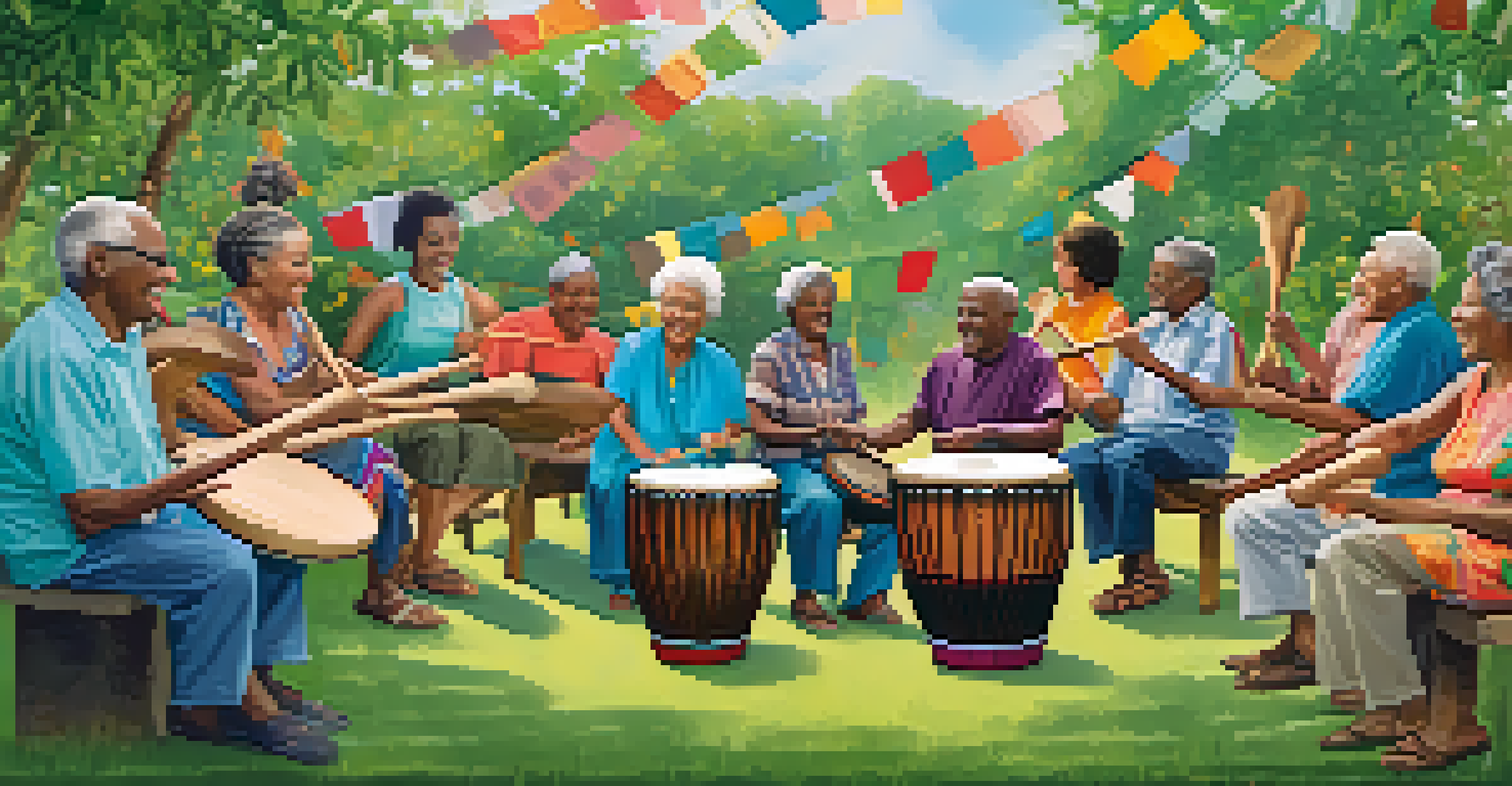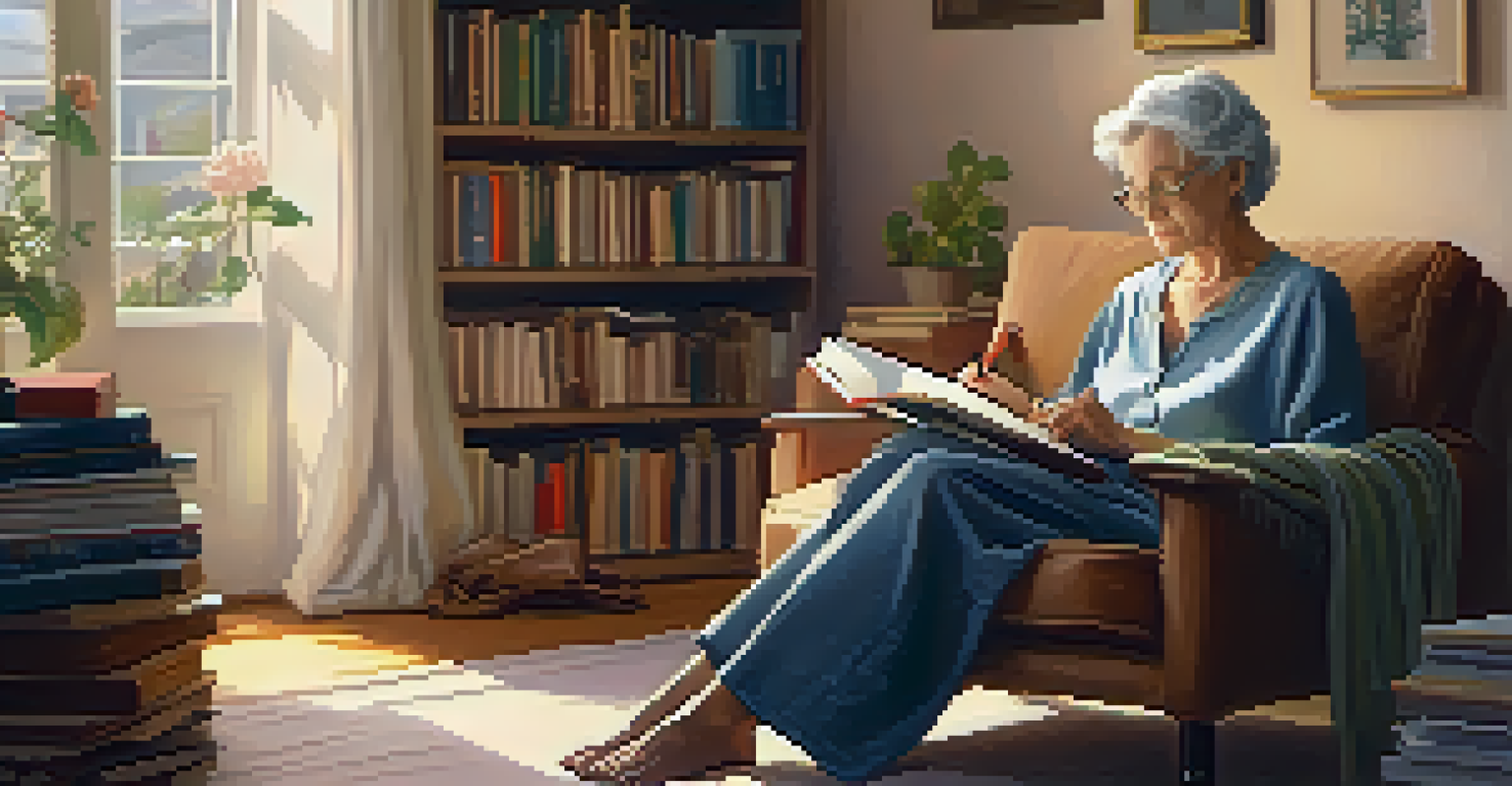The Connection Between Music and Creativity in Older Adults

Music as a Catalyst for Creative Expression in Seniors
Music has a unique ability to unlock creative expression, especially in older adults. As people age, they often seek new ways to express themselves, and music provides an excellent outlet. Whether it's playing an instrument or singing, engaging with music can lead to a surge in creative thinking and emotional release.
Music can change the world because it can change people.
For many seniors, music can evoke memories and emotions that fuel their creativity. This connection is powerful; it allows them to revisit past experiences and reframe them through a creative lens. It's like finding a key to a door that opens up a world of inspiration and imagination.
Moreover, participating in musical activities can foster social connections, further enhancing creative expression. Group music sessions can create a sense of community, allowing older adults to share their ideas and collaborate, leading to richer creative experiences.
The Role of Music in Enhancing Cognitive Function
Engaging with music is not just enjoyable; it also stimulates cognitive function. Studies have shown that listening to or playing music can enhance brain activity, leading to improved memory and focus. For older adults, this can be especially beneficial as they navigate the challenges of aging.

For instance, learning a new song or instrument requires practice and concentration, which can sharpen mental acuity. This cognitive engagement can translate into increased creativity, as the brain becomes more adept at forming new connections and ideas. It's a win-win situation!
Music Unlocks Creativity in Seniors
Engaging with music provides older adults a powerful outlet for creative expression and emotional release.
Additionally, music can serve as a form of mental exercise, helping to ward off cognitive decline. By regularly engaging in musical activities, seniors can maintain their mental sharpness while exploring their creative side, making music a powerful tool for both brain health and creativity.
Emotional Well-Being and Its Impact on Creativity
Emotional well-being is closely tied to creativity, and music plays a significant role in enhancing both. For older adults, music can be a source of comfort, joy, and nostalgia, all of which contribute to a positive emotional state. When individuals feel good emotionally, they are more likely to explore their creative potential.
The beautiful thing about music is that it transcends language.
For example, listening to uplifting music can boost mood and inspire new ideas. Similarly, composing music or writing lyrics can act as a therapeutic outlet for expressing feelings. This emotional connection to music can lead to a deeper engagement in creative activities.
Moreover, music can help older adults process complex emotions, providing a safe space for reflection and creativity. As they express their thoughts and feelings through music, they unlock new avenues for creative expression, ultimately enriching their lives.
Group Music Activities and Their Creative Benefits
Participating in group music activities can significantly enhance creativity among older adults. These sessions foster a sense of belonging, encouraging individuals to share ideas and collaborate. This communal aspect of music can spark creativity that may not be achieved when creating solo.
Think of a community choir or a drumming circle—these environments nurture creativity by allowing participants to express themselves collectively. The shared experience of making music often leads to new interpretations and innovative ideas, showcasing the power of collaboration.
Cognitive Benefits of Musical Engagement
Playing or listening to music enhances cognitive function, which in turn stimulates creativity in older adults.
In addition, group music activities can provide valuable feedback and encouragement. When older adults share their musical creations, they receive support and inspiration from peers, further fueling their creative endeavors. It's a beautiful cycle of inspiration and growth.
Exploring Different Musical Genres to Ignite Creativity
Exploring various musical genres can be a fantastic way for older adults to ignite their creativity. Each genre offers unique rhythms, melodies, and themes that can inspire different forms of artistic expression. From classical to jazz and folk to rock, the diversity of music can spark new ideas.
For instance, a senior who enjoys classical music might find inspiration in the intricate compositions to create their own melodies. Conversely, someone who loves folk music may be inspired to write lyrics that reflect their life experiences. This exploration can lead to exciting new projects and creative endeavors.
Moreover, trying out different genres can help seniors discover hidden talents or interests. By stepping outside their musical comfort zones, they may unearth new passions that fuel their creativity, making music a lifelong adventure.
The Therapeutic Aspects of Music for Creativity
Music therapy is a powerful tool that can enhance creativity in older adults. This therapeutic approach uses music to address emotional, cognitive, and social needs, often leading to increased creative expression. Through guided musical experiences, seniors can explore their feelings and thoughts in a supportive environment.
For example, a music therapist might help an older adult create a personal song that reflects their life story. This process not only serves as a creative outlet but also encourages self-reflection and expression. The act of creating music becomes a therapeutic journey, enhancing both emotional well-being and creativity.
Group Music Activities Foster Connection
Participating in group music sessions encourages collaboration and community, enriching the creative experiences of older adults.
Additionally, music therapy can boost self-esteem and confidence, which are essential for creative exploration. As seniors engage with music in a therapeutic setting, they often feel empowered to pursue their creative interests, leading to a more fulfilling and enriched life.
Lifelong Learning: Music Education for Seniors
Lifelong learning is a crucial aspect of personal growth, and music education offers a fantastic opportunity for older adults to continue developing their skills. Taking music lessons, whether online or in-person, can open new doors for creative expression and enjoyment. It's never too late to learn something new!
For instance, many seniors find joy in picking up a new instrument or joining a music class tailored for their age group. This not only enhances their musical abilities but also fosters a sense of achievement that can boost creativity. The learning process itself can be invigorating, encouraging exploration and innovation.

Furthermore, engaging in music education helps older adults connect with others who share similar interests. This sense of community and shared learning can lead to collaborative creative projects, enriching their musical journey even further.